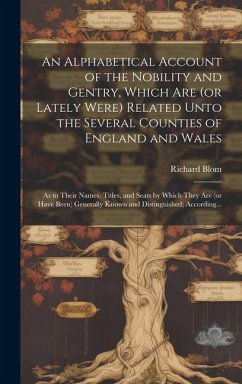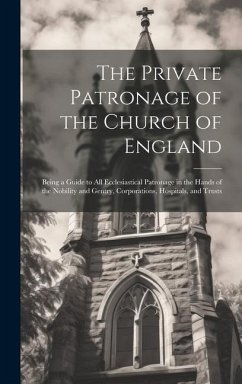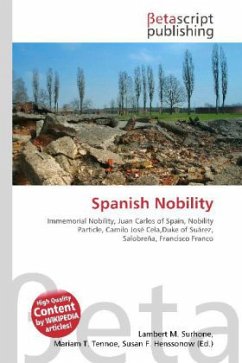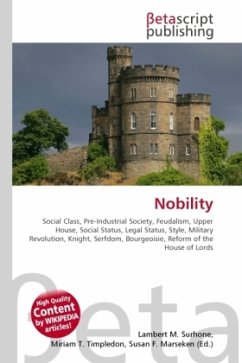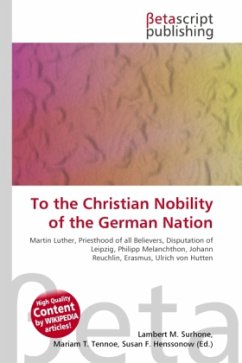
To the Christian Nobility of the German Nation
Versandkostenfrei!
Versandfertig in 6-10 Tagen
32,99 €
inkl. MwSt.

PAYBACK Punkte
16 °P sammeln!
High Quality Content by WIKIPEDIA articles! To the Christian Nobility of the German Nation (German: An den christlichen Adel deutscher Nation) is the first of three tracts written by Martin Luther in 1520. In this work, he defined for the first time the signature doctrines of the Priesthood of all believers and the two kingdoms.The Disputation of Leipzig (1519) brought Luther into contact with the humanists, particularly Melanchthon, Reuchlin, Erasmus, and associates of the knight Ulrich von Hutten, who, in turn, influenced the knight Franz von Sickingen. Von Sickingen and Silvester of Schauen...
High Quality Content by WIKIPEDIA articles! To the Christian Nobility of the German Nation (German: An den christlichen Adel deutscher Nation) is the first of three tracts written by Martin Luther in 1520. In this work, he defined for the first time the signature doctrines of the Priesthood of all believers and the two kingdoms.The Disputation of Leipzig (1519) brought Luther into contact with the humanists, particularly Melanchthon, Reuchlin, Erasmus, and associates of the knight Ulrich von Hutten, who, in turn, influenced the knight Franz von Sickingen. Von Sickingen and Silvester of Schauenburg wanted to place Luther under their protection by inviting him to their fortresses in the event that it would not be safe for him to remain in Saxony because of the threatened papal ban. Between the Edict of Worms in April 1521 and Luther's return from the Wartburg in March 1522 a power struggle developed of who was to lead the Reformation through its competing possibilities and how the Reformers should follow their teachings.



![The Dormant and Extinct Baronage of England; or, An Historical and Genealogical Account of the Lives, Public Employments, and Most Memorable Actions of the English Nobility who Have Flourished From the Norman Conquest to ... 1806 [-1837] .. Volume 1 Cover The Dormant and Extinct Baronage of England; or, An Historical and Genealogical Account of the Lives, Public Employments, and Most Memorable Actions of the English Nobility who Have Flourished From the Norman Conquest to ... 1806 [-1837] .. Volume 1](https://bilder.buecher.de/produkte/64/64834/64834893n.jpg)


